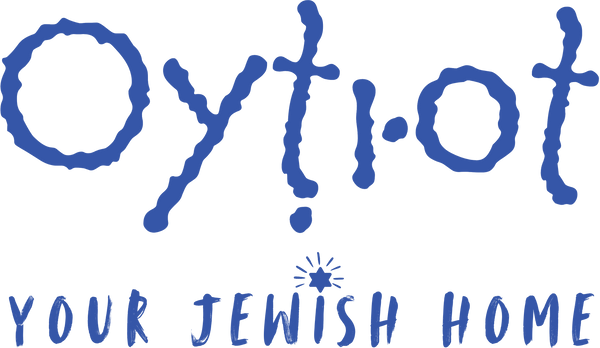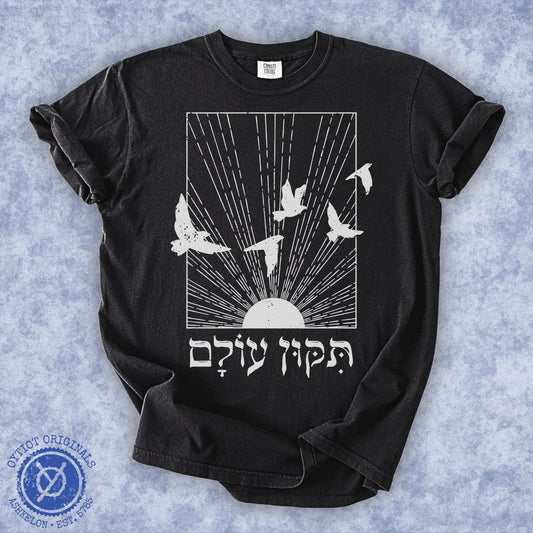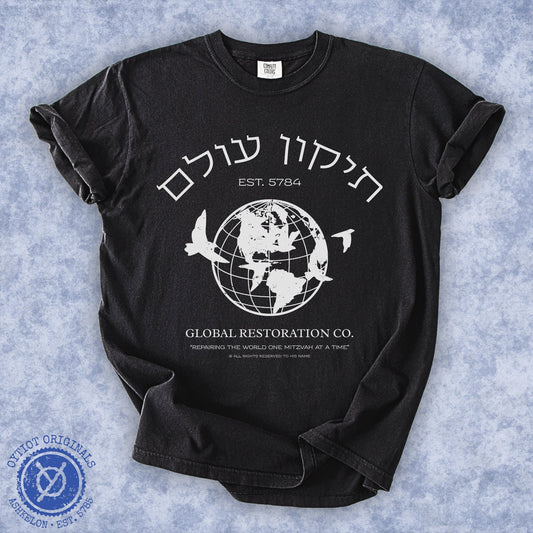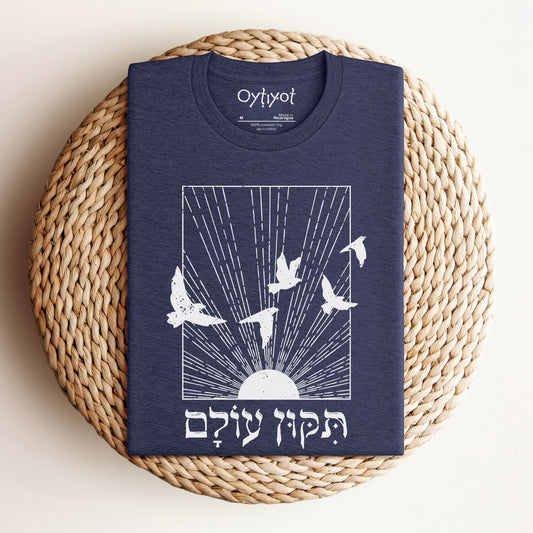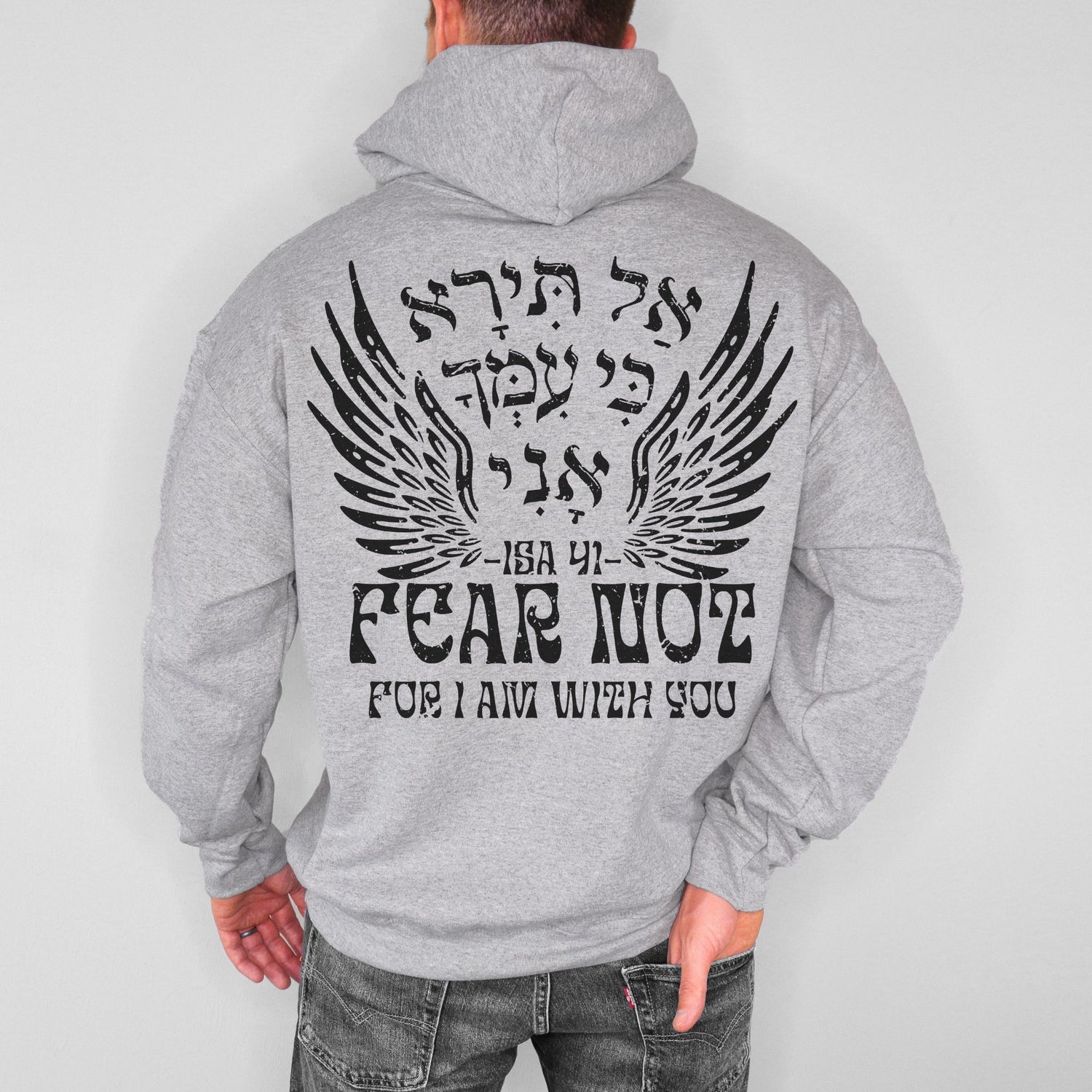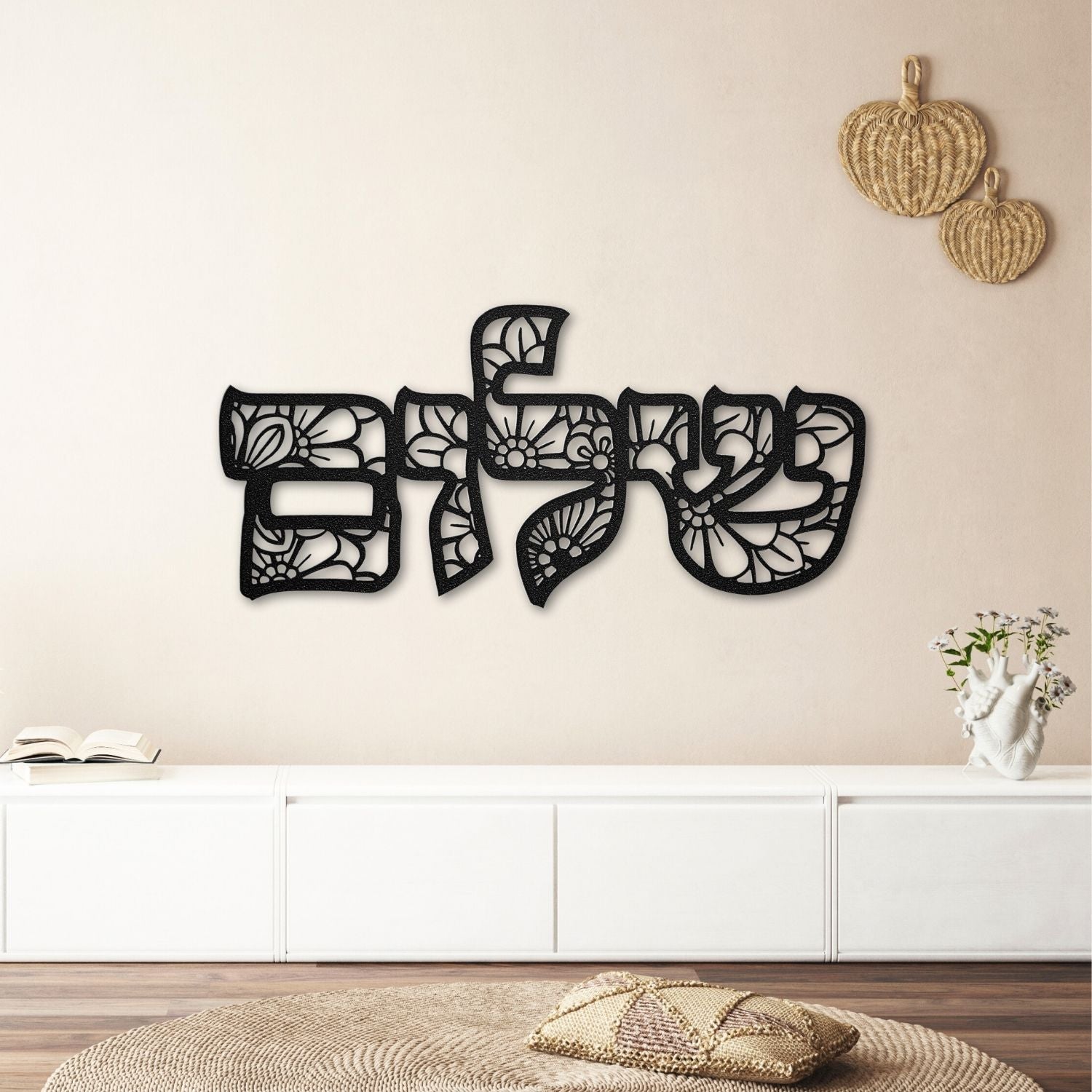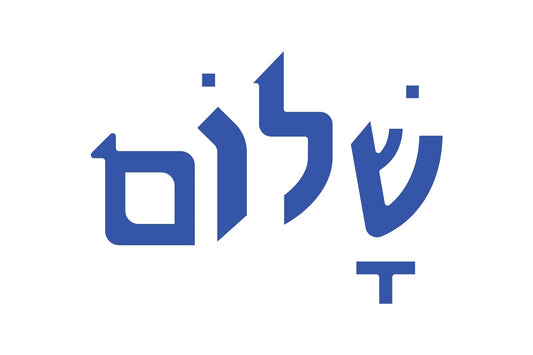
Tikkun Olam – The Ancient Jewish Call to Fix the World
You’ve probably heard the phrase Tikkun Olam thrown around at some point,
on a protest sign, at a synagogue service, or maybe even in a Jewish summer camp circle.
But what does it actually mean to “fix the world”? And where does this powerful phrase come from?
Let’s go back (way, way back) to the roots of the phrase that has become a Jewish cultural mission statement.
What Does “Tikkun Olam” Mean?
תיקון עולם literally translates to “repairing the world.”
But it’s so much more than just patching things up. It’s a deeply spiritual and moral concept that has evolved through centuries of Jewish thought.
In modern times, it's used to describe acts of social justice, activism, and healing - but its roots stretch all the way back to rabbinic texts, mystical teachings, and even the legal frameworks of ancient Judaism.
📜 Tikkun Olam in the Torah & Jewish Sources
While the actual phrase “Tikkun Olam” doesn’t appear in the Torah itself, the idea is everywhere.
-
Genesis: The Torah begins with chaos (tohu vavohu) and tells of God’s act of creation — bringing order into the world. Human beings, made in God’s image, are charged with continuing that mission of cultivating and improving the world.
-
Deuteronomy 16:20: “Justice, justice shall you pursue…” – a clear call to create a just and moral society.
Pirkei Avot (Ethics of the Fathers) 2:16:
“It is not your duty to complete the work, but neither are you free to desist from it.”
In other words: even if you can’t fix everything, you’re still responsible for doing something.

📚 In Rabbinic and Mystical Texts
The actual term Tikkun Olam first shows up in the Mishnah (Gittin 4:2) — describing legal reforms made “for the sake of the world’s stability” (Mipnei Tikkun HaOlam). These were practical fixes to ensure social balance and prevent harm.
Later, in the 16th century, the Kabbalist Rabbi Isaac Luria (the Ari) brought a cosmic layer to the phrase. According to Lurianic Kabbalah, the world was created through divine vessels that shattered - scattering divine sparks across creation.
Our job? Gather the sparks and restore the world to spiritual wholeness. That’s Tikkun Olam.
So yes, even picking up litter or lighting Shabbat candles can be part of this mystical world-healing.
🌍 Tikkun Olam Today: From Slogans to Action
In recent decades, Tikkun Olam has become a guiding value in Jewish social justice and community life. It shows up in:
-
Environmental activism
-
Feeding the hungry
-
Supporting refugees
-
Advocating for peace and human rights
-
Volunteering, mentoring, donating, showing up, standing up
Organizations from Jewish youth groups to global nonprofits use Tikkun Olam as a rallying cry.
And it’s not just for activists. It’s for parents teaching kindness, kids helping classmates, artists spreading light, business owners giving back — everyone can take part.
✡ Final Thought
In a world that feels broken in so many ways,
this phrase offers hope.
Not a passive hope, but a call to action.
Don’t wait for someone else to fix it.
Start small.
Start now.
That’s the Jewish way.
That’s Tikkun Olam.
Wear the Repair🕊️
At Oytiot, we took inspiration from this ancient mission and created a line that celebrates Tikkun Olam — with bold Hebrew typography and a washed vintage vibe that makes this message feel as timeless as it truly is.
Whether it’s on your wall, your coffee mug, or your favorite tee — it’s more than merch. It’s a reminder.
A reminder that you’re part of the fix.
And that your actions, however small, matter.
[👉 Explore the Tikkun Olam Collection]
A portion of every sale gives back.
